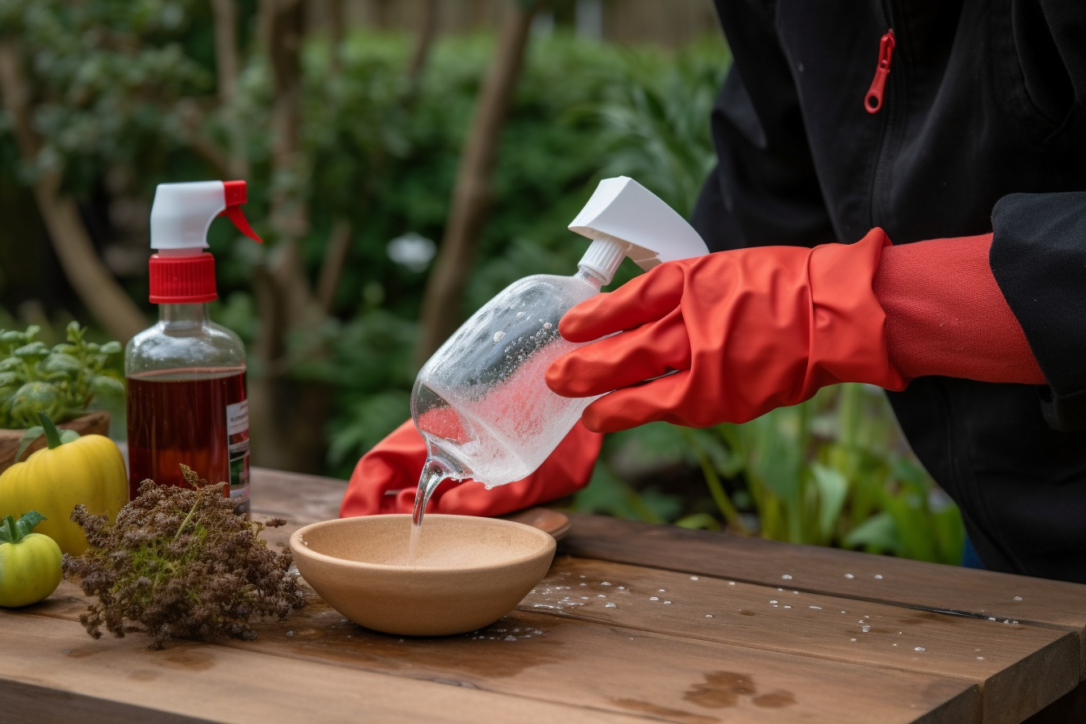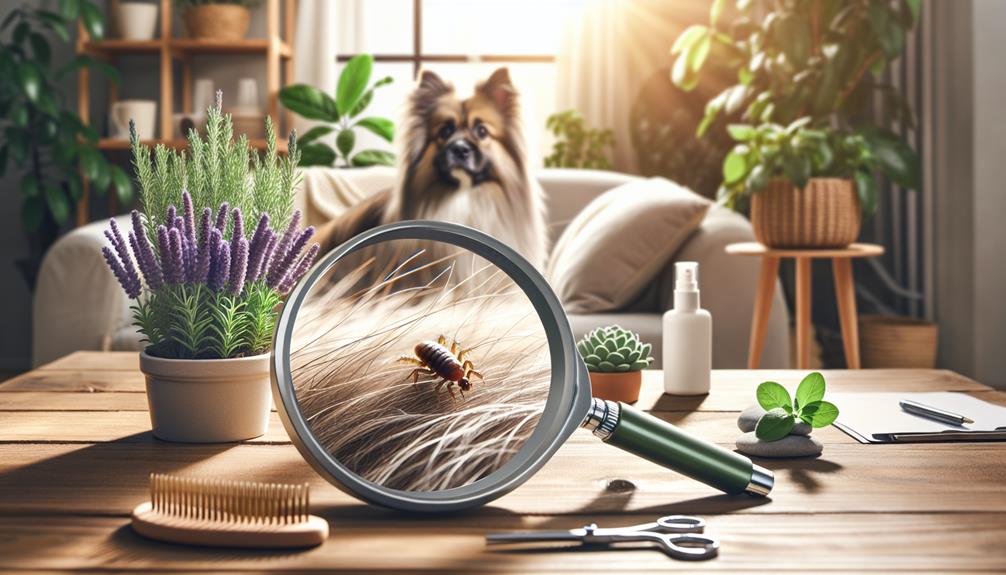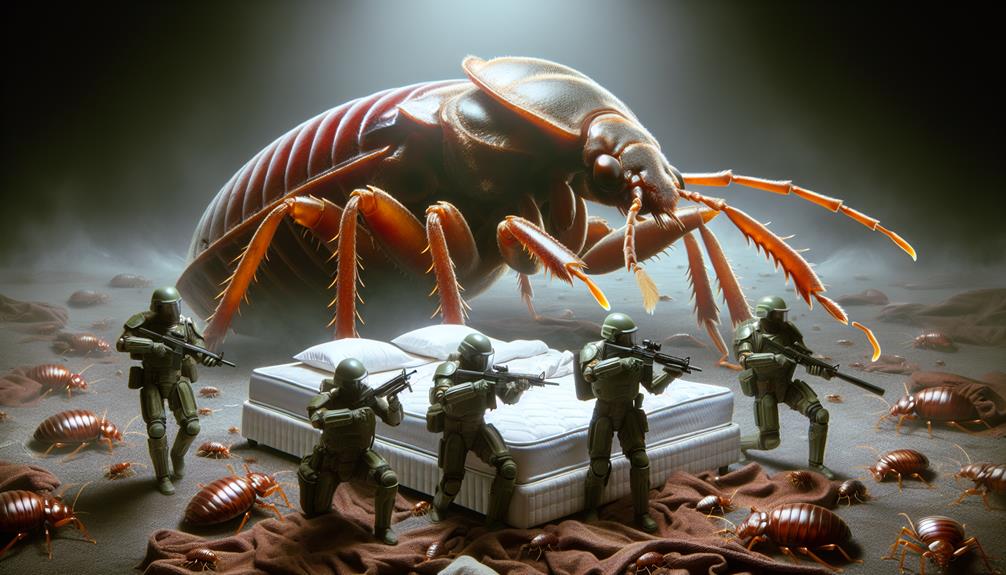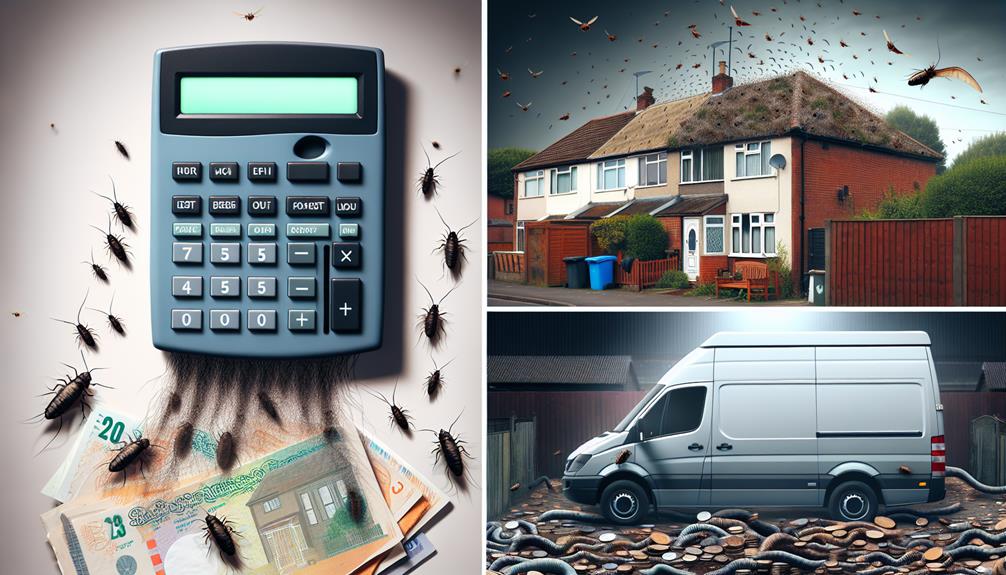Table of Contents
Do you ever find yourself dealing with pesky pests in and around your home? Have you tried every store-bought remedy under the sun but still can’t seem to get rid of them? You’re not alone! As it turns out, there are plenty of natural solutions that you can make using everyday household items.
There’s no need to feel overwhelmed or isolated – homemade pest control remedies are here to help us all take back our homes from those uninvited guests. These DIY methods are easy on the wallet, family-friendly and most importantly, effective.
So don’t worry – we’ll teach you how to use common ingredients found in your kitchen pantry or bathroom cabinet to put an end to your pest problem once and for all! Read on as we explore natural solutions for homemade pest control remedies.
Vinegar
Vinegar is a powerful tool for getting rid of pests in the home. Not only does it have antibacterial properties, but when mixed with other household items such as water or essential oils, its potency increases significantly.
If you’re dealing with ants entering your kitchen from outside, using vinegar can be an effective solution to repel them and keep them away for good. To get started, combine equal parts white vinegar and water in a spray bottle. Add several drops of peppermint oil if desired – this will give it an extra punch that bugs really don’t like!
Then spray all around entry points where insects may enter – windowsills, doorframes, cracks in walls etc. Do this every few days until they stop showing up altogether.
Moving forward to the next homemade pest control remedy…
Baking Soda
I’m sure we all know that baking soda has multiple uses, so let’s talk about how we can use it for homemade pest control.
It has many benefits too, like being a natural and safe way to get rid of pests.
It’s also relatively inexpensive compared to other solutions.
Let’s discuss the different uses of baking soda and the benefits it provides.
Uses Of Baking Soda
Baking soda is one of the most versatile items you can have in your home when it comes to pest control. It’s a natural and non-toxic way to keep pests away, as well as an easy solution for cleaning up messes they may leave behind.
So let’s look at some of the ways baking soda can be used around the house to manage pesky critters.
One common use of baking soda is to get rid of ants. Sprinkle some along their trails or mix two tablespoons with a cup of water and spray the mixture directly onto them. You could also create a barrier by mixing equal parts sugar, flour and baking soda together, then placing it near ant hills or nesting areas. The sweet smell lures them in but the gritty texture of the mixture will make it difficult for them to get out again!
When dealing with cockroaches, try sprinkling baking soda into any cracks where they might be hiding. This traps them inside so they won’t be able to escape – just remember to vacuum up afterwards!
Baking soda is also great if you want to repel rodents like mice and rats; simply sprinkle it around entryways or anywhere else you think they might enter your home.
With these simple remedies using everyday household items, you’ll soon have those pesky critters under control – no need for harsh chemicals that could harm other creatures living nearby.
Benefits Of Baking Soda
Baking soda is not just an effective pest control agent – it also has a myriad of other benefits.
From providing relief for heartburn to being used as a natural deodorant, baking soda can be your go-to ingredient when you’re looking for an all-natural solution.
It’s even great at absorbing odours and freshening up the air in your home!
But that’s not all; baking soda can be used as a gentle exfoliator on your skin, too.
Just mix some with water to create a paste and apply it directly onto your face or body before rinsing off with warm water.
You’ll be left feeling refreshed and invigorated with glowing skin!
On top of this, baking soda can also help keep your laundry bright and fresh – just add half a cup per load during the wash cycle for extra sparkle.
So why use harsh chemicals when there’s already something sitting in your pantry?
Baking soda truly does have many uses beyond controlling pests, making it one essential item everyone should have in their homes!
Essential Oils
Using essential oils to create natural homemade pest control remedies can be an effective and powerful way of keeping unwanted bugs at bay. Essential oils are derived from plants, making them a great choice for those looking to use non-toxic products around their home. Plus, they smell amazing!
Blends like lavender, basil, peppermint, and cedarwood work particularly well in repelling pests while also providing aromatherapy benefits that you and your family will enjoy. When using essential oils as part of a pest control routine it is important to note that not all insects respond the same way to these potent plant extracts. To maximize effectiveness when combating different kinds of pests, try experimenting with various combinations of essential oil blends until you find one that works best for your needs.
It’s also helpful to apply the blend directly onto surfaces where pests may enter your home or linger, such as doorways and windowsills. Essential oils have been used by humans throughout history and remain a popular choice today due to their versatility and ability to make do-it-yourself pest solutions without harsh chemicals.
By creating unique blends tailored specifically towards the type of infestation you are dealing with, essential oils provide an easy solution that won’t harm the environment or put your family’s health at risk. With this knowledge in hand, let us move on to discuss diatomaceous earth — another equally useful substance for controlling household pests naturally.
Now, let’s take a look at diatomaceous earth – another popular option when it comes to homemade pest control remedies.
Diatomaceous Earth
Diatomaceous Earth is made up of the fossilized remains of tiny aquatic organisms called diatoms. It works by dehydrating and eventually killing insects that come into contact with it. This makes it an excellent choice for organic gardening and pest control in general! The best part? You don’t need any special knowledge or equipment; all you have to do is sprinkle some around areas where bugs might be entering your home.
It’s important to note that Diatomaceous Earth isn’t effective against flying insects like mosquitoes or moths – but it can certainly help keep ants, fleas, cockroaches, earwigs, and more under control! Plus, it won’t harm humans or pets when applied correctly.
All things considered, this is one of the simplest yet powerful ways to make sure unwanted critters stay out of your house without resorting to harsh chemicals.
Next up on our list of homemade pest control remedies: citrus fruits! Lemons, limes, oranges – they’re not just delicious ingredients in recipes but also great tools for getting rid of pesky bugs in no time flat!
Citrus Fruits
Citrus fruits are a great source of natural pest control. They can be used to help rid your home or garden of pests, like ants and cockroaches. Plus, they’re easy to come by – all you need is some lemon juice, oranges, or limes!
Here’s how citrus fruits can help:
- Citrus Fruits Help Mask Pests’ Scent Paths – Ants rely on scent trails to find food sources. Sprinkling orange or lemon peels around the area where the ants enter your house will mask any existing scents that attract them. You can also mix these peels with vinegar for an extra kick!
- Create A Natural Repellent With Essential Oils – By combining essential oils with water in a spray bottle, you can create a natural repellent that will keep pests away from your plants and furniture. Try using citronella oil, lemongrass oil, or lavender oil as part of your homemade repellant mixture.
- Make Your Own Insecticidal Soap Spray – Mixing equal parts of liquid soap and warm water together creates an effective insecticidal solution that won’t harm plants or people. Use this spray directly on troublesome insects like aphids and mealybugs for quick results.
Using citrus fruits and other household items is one way to take care of pesky pests without having to resort to harsh chemical sprays or traps. It’s simple, cost-effective, and environmentally friendly – plus it works!
If you’re looking for an easy way to get rid of unwanted guests around the house, give citrus fruits a try today!
Frequently Asked Questions
What Other Household Items Can I Use For Pest Control?
Are you looking for other household items to use as a pest control remedy?
There are many natural solutions that can be found in and around your home. For example, peppermint oil is an effective deterrent against ants and cockroaches; diatomaceous earth can help rid your garden of slugs and snails; and cedar chips can repel moths from clothes closets.
You don’t have to rely on harsh chemicals to keep pests away – there are plenty of safe alternatives right at your fingertips!
Is It Safe To Use These Remedies Around Children And Pets?
It’s important to consider your family when using any kind of pest control, especially if you have children or pets.
Fortunately, many homemade remedies use everyday household items that are safe around kids and animals.
However, it’s best to double-check the ingredients list before using a remedy in an area where little ones and furry friends spend time.
If you’re ever unsure about safety, consult an expert for advice on how to keep your loved ones protected!
How Often Should I Use Pest Control Remedies?
When it comes to pest control, using remedies can be a great way to combat the problem without resorting to harsh chemicals. But how often should you use these solutions?
It really depends on your particular situation and the severity of your pest problem. Generally, most household remedies will need to be applied every couple of days until all signs of pests have disappeared. If you’re dealing with a particularly stubborn infestation, more frequent applications may be necessary.
Of course, if you find that the issue has not been resolved after several treatments, then it’s time to call in professional help.
Are There Any Environmental Risks With Using Homemade Pest Control Remedies?
Are there any environmental risks with using homemade pest control remedies?
It’s a valid concern, especially given that some store-bought solutions contain chemicals which can be harmful.
Fortunately, natural and non-toxic methods of pest control exist which are safe for the environment.
Many household items such as vinegar, essential oils, and boric acid can be used to create effective DIY pest control treatments without any harm to your local ecosystem.
What Is The Best Way To Apply The Remedies?
When it comes to applying homemade pest control remedies, the best approach is to directly target the pests and their nest.
You should avoid using too much of any one remedy at once as this can disrupt the environment more than necessary.
Instead, use small amounts in strategic places for maximum effect – like near entry points or around nests.
For example, if you’re trying to repel ants from your home, sprinkle a line of cayenne pepper powder along doorways and windowsills.
This will create an invisible barrier that ants won’t want to cross!
You may also enjoy reading this article
Was This Article Helpful?
- Please provide feedback and comments to help us improve our content.
- Share your experiences and any additional tips you have for dealing with pests.
Share this Post



